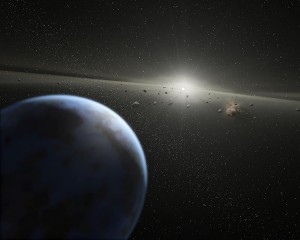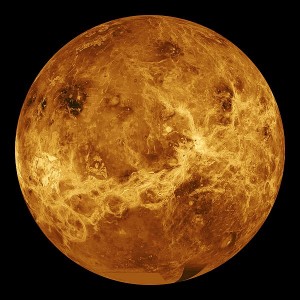
Remember a month or so ago, when astronomers running NASA’s Kepler satellite announced they’d release the data on 300 possibly earth-like planets but keep the 400 best possibilities proprietary to NASA and announce it all next February? And non-Kepler astronomers, the media, and the internet fussed at the Kepler astronomers for being dogs-in-the-manger? And then everybody forgot about it? This is such a delight: last week, late July, not February, one of the Kepler astronomers publicly announced the discovery of around 140 earth-like planets, a whole galaxy of earth-like planets. I can’t decide whether it’s an example of scientists incapable of following corporate rules, or scientists congenitally unable to keep quiet, or scientists just behaving like the rest of us.
The true story so far: after the fuss in June, everybody more or less agreed that though the data had already been kept proprietary to NASA for a year – as was their right — probably keeping it until next February would be okay. Then one of the Kepler astronomers gave a talk at a public conference that was posted to a public website, titled “How We Found Hundreds of Potential Earth-like Planets,” showing the number of planets by size, and planets “like Earth” were by far the most numerous, maybe around 140 of them. We need to confirm these planets, he said, “but the statistical result is that planets like our own Earth are out there. Our Milky Way galaxy is rich with this kind of planet.”
Only large, Jupiter-like planets had been found before, one Earth-like planet would have been big news, but a galaxy full of them? And NASA’s not announcing this with press releases and spectacular images?

Astronomy bloggers got hold of it and were by turns, impressed, confused, and annoyed. So the Kepler astronomer issued a statement saying that the press had mixed up “earth-like” with “earth-sized.” That didn’t clarify much. So he issued another statement explaining that Kepler measured planet sizes but Earth-sized planets could also be as uninhabitable as Venus, and since he was more interested in geochemistry and had only 18 minutes to talk, “the expected number of planets, size and Earth-like chemistry got confused, and created a misunderstanding.” Astronomy bloggers felt blamed for being confused and blamed the astronomer right back. Which is pretty much where things stand now.
NASA generally releases information highly orchestratedly – carefully vetted press releases, or for hot news, press conferences with panels of distinguished astronomers. But astronomers’ culture is not congenial to orchestration; most Kepler astronomers are universities’ employees, not NASA’s; and when a university astronomer finds hot news, the astronomer makes it public. University astronomers working in teams on NASA satellites are supposed to follow NASA rules. Not that this latest example of the culture gap matters dreadfully much. True, the news had spread around on internet news sites with headlines like “Nasa Discoveries Spark Hopes Of Alien Life.” But the news never hit widely in the media and I doubt that many people had hopes of alien life.
So we’ll just wait for the full orchestration next February. We’ll remember that these are planet-candidates and not actual confirmed planets. And meanwhile we’ll entertain ourselves with thoughts of a lone astronomer so happy about a graph that he couldn’t help but talk about it, and once he did, he did what politicians, celebrities, and everybody else does, explain yourself again. And again.
Photo credits:
T. Pyle, NASA/JPL-Caltech/SST, Wikimedia Commons
NASA, http://photojournal.jpl.nasa.gov/catalog/PIA00104, Wikimedia Commons
I have no hopes of alien life. Nor of a perpetual motion machine or a water-powered internal combustion engine. Science and hopes don’t mix.
I do, though, have hopes about all kinds of stuff in the arena of politics. So I agree with what I think you’re saying: let’s keep the two apart. A lot of pain, anxiety and wasted effort would be saved on both sides.
I agree about the pain, anxiety, and waste, but scientists being human, I just don’t see how to keep science and politics separate.